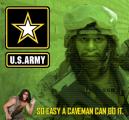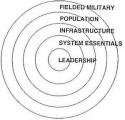Numerous industrial technology forms were adapted in the 1980s and 1990s into management practices. (e.g.) McDonalds using six sigma on the management of drive thru order accuracy; Assessment of lawyers using total quality management on time sheet billing; the aforementioned zero defect for training.







 "A Sherman can give you a very nice... edge."- Oddball,
"A Sherman can give you a very nice... edge."- Oddball, 




 which is where it all started to go wrong.
which is where it all started to go wrong. . Zero defects has some benefits. We used to call it "Making The Man". Not sue why the phrase came about but that is what we called it.
. Zero defects has some benefits. We used to call it "Making The Man". Not sue why the phrase came about but that is what we called it.






Bookmarks